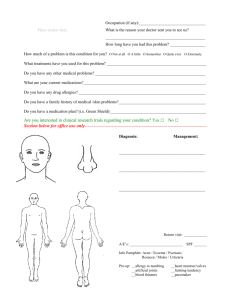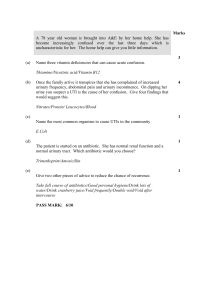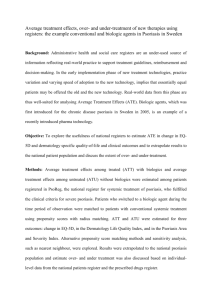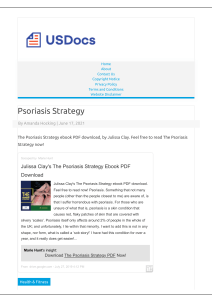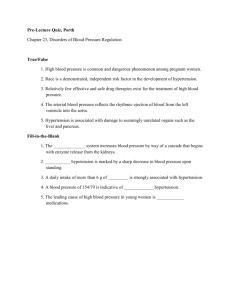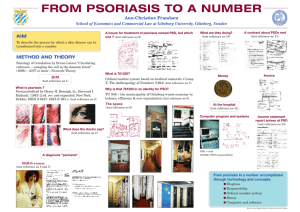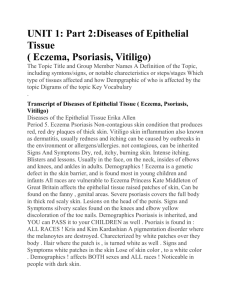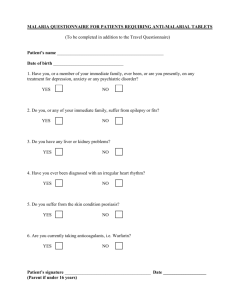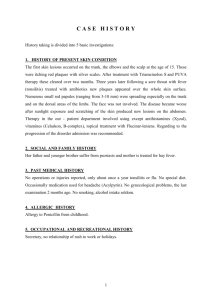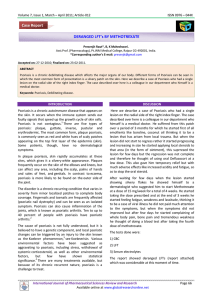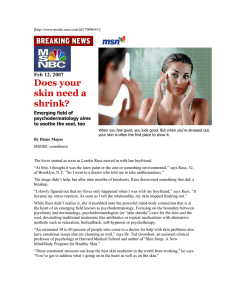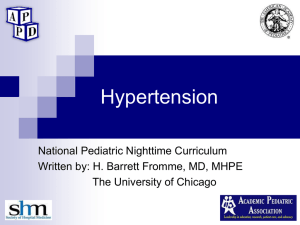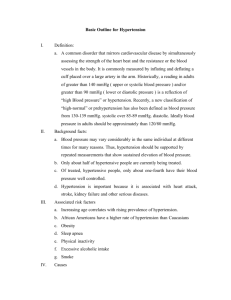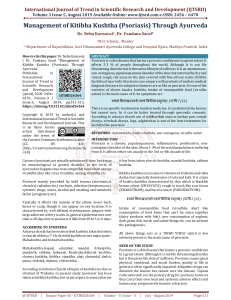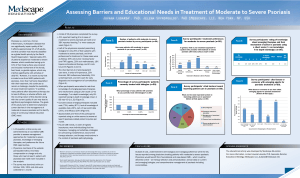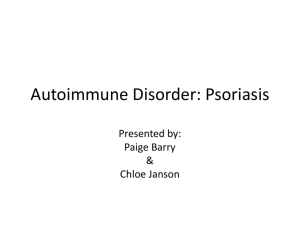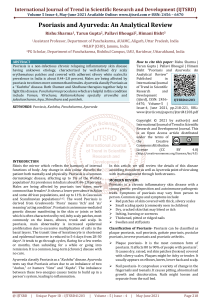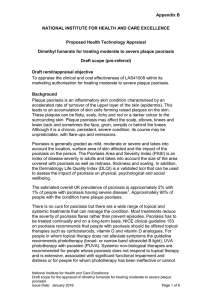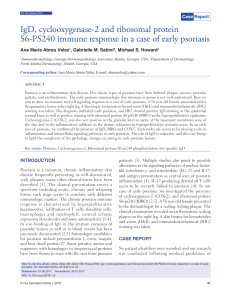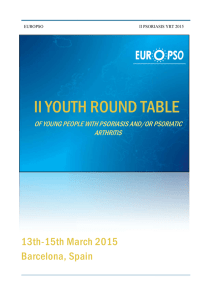hypertensive emergencies in winters
advertisement
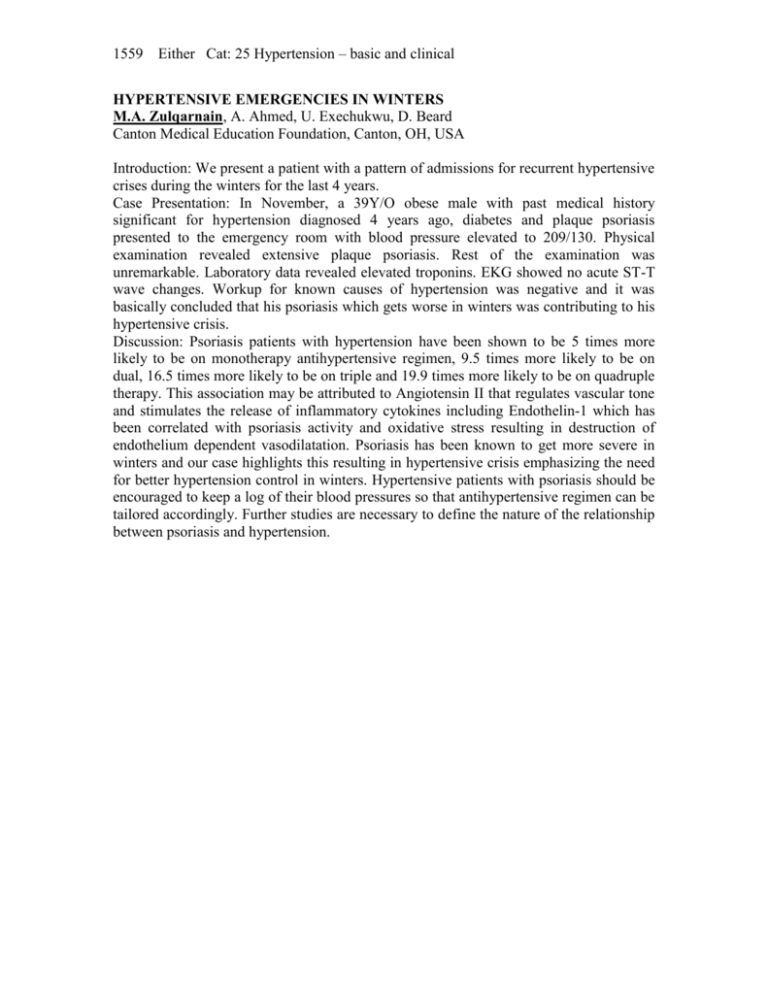
1559 Either Cat: 25 Hypertension – basic and clinical HYPERTENSIVE EMERGENCIES IN WINTERS M.A. Zulqarnain, A. Ahmed, U. Exechukwu, D. Beard Canton Medical Education Foundation, Canton, OH, USA Introduction: We present a patient with a pattern of admissions for recurrent hypertensive crises during the winters for the last 4 years. Case Presentation: In November, a 39Y/O obese male with past medical history significant for hypertension diagnosed 4 years ago, diabetes and plaque psoriasis presented to the emergency room with blood pressure elevated to 209/130. Physical examination revealed extensive plaque psoriasis. Rest of the examination was unremarkable. Laboratory data revealed elevated troponins. EKG showed no acute ST-T wave changes. Workup for known causes of hypertension was negative and it was basically concluded that his psoriasis which gets worse in winters was contributing to his hypertensive crisis. Discussion: Psoriasis patients with hypertension have been shown to be 5 times more likely to be on monotherapy antihypertensive regimen, 9.5 times more likely to be on dual, 16.5 times more likely to be on triple and 19.9 times more likely to be on quadruple therapy. This association may be attributed to Angiotensin II that regulates vascular tone and stimulates the release of inflammatory cytokines including Endothelin-1 which has been correlated with psoriasis activity and oxidative stress resulting in destruction of endothelium dependent vasodilatation. Psoriasis has been known to get more severe in winters and our case highlights this resulting in hypertensive crisis emphasizing the need for better hypertension control in winters. Hypertensive patients with psoriasis should be encouraged to keep a log of their blood pressures so that antihypertensive regimen can be tailored accordingly. Further studies are necessary to define the nature of the relationship between psoriasis and hypertension.
